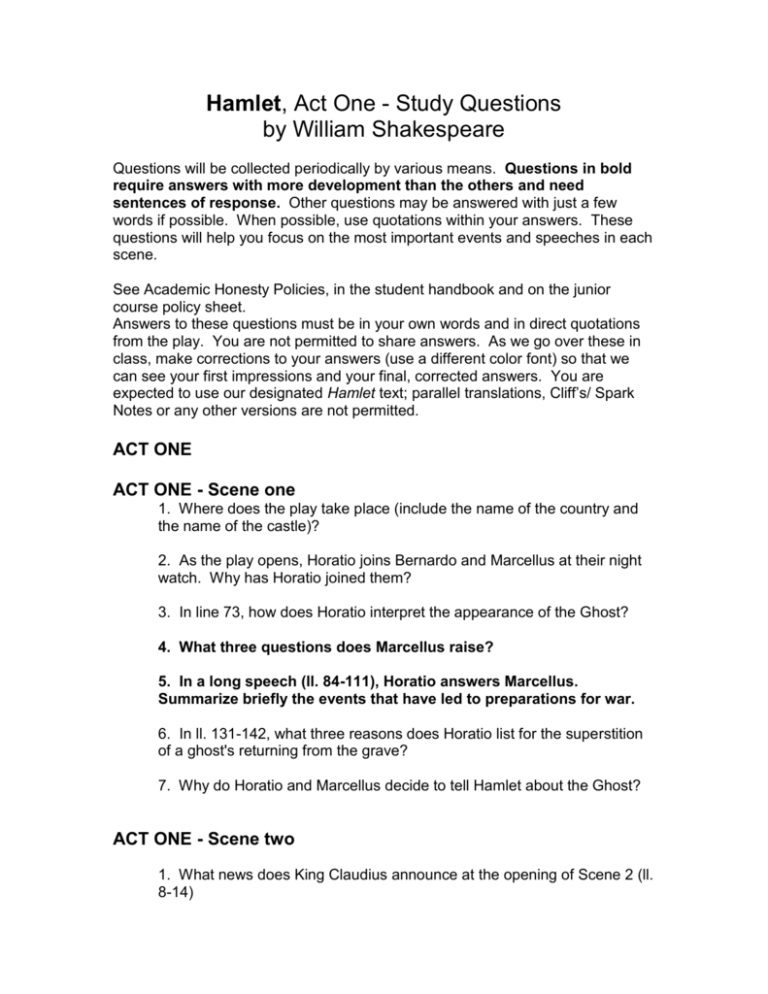
She tells him of Hamlet’s accidental killing of Polonius and Claudius realizes that he could have just as easily been slain. Immediately after Hamlet exits, dragging Polonius’ body, we see Claudius asking Gertrude to explain what has happened. Shakespeare’s Hamlet By Carla Lynn Stockton IN THIS BOOK Discover William Shakespeare and his writing Preview an Introduction to the Play Explore themes, character development, and recurring images in the Critical Commentaries Savor in-depth Character Analyses Understand the play better through the Critical Essays Reinforce what you learn with the CliffsNotes Review Find additional.
He is surprised when he pulls back the screen to see the dead body of Polonius. Hamlet is shocked and stabs through the arras with a knife. Polonius is spying on them from behind an arras and when Gertrude screams, Polonius makes a noise. Book Condition: new.Act 3 scene 4 Hamlet visits his mother in her closet and threatens her. Scene 2These fresh, original, high-impact monologues and one-acts are perfect for auditions, classes, scene study and theatrical presentations. The king orders Rosencrantz and Guildenstern to find Hamlet and discover where he has taken Polonius’ corpse.

Detailed Summary & Analysis Act 1, Scene 1 Act 1, Scene 2 Act 1, Scene 3 Act 1, Scene 4 Act 1, Scene 5 Act 2, Scene 1 Act 2, Scene 2 Act 3, Scene 1 Act 3, Scene 2 Act 3, Scene 3 Act 3. Hamlet Introduction + Context. Hamlet by William Shakespeare Plot Summary LitCharts. From the creators of SparkNotes.


He hangs back from the others marching to the ship and delivers a long soliloquy on the irony of this occasion – these men are off to risk their lives for a worthless piece of land, while he, who has every reason to risk his life in the cause of revenge, delays and fails to act. Hamlet wraps up his conversation with the captain. Hamlet suggests that the Poles will not likely defend such a piece of land, but the captain sets him straight, saying that Poland is already garrisoned and ready for their dispute.
Ophelia then speaks openly of her father’s untimely demise and hasty, unofficial burial. The king enters and witnesses her madness. The queen reluctantly admits Ophelia, who proceeds to sing a number of simple and haunting songs, some of them quite bawdy. She is rambling nonsensically about her father and insisting on seeing Gertrude. Scene 5Back in the court of Denmark, we see Gertrude speaking with a gentleman who explains that Ophelia has gone mad. Ironically, however, just after making this resolution he continues on toward England, leaving Denmark behind him.
Claudius attempts to calm Laertes and tells Gertrude to keep out of their talk and let Laertes question him to his heart’s content. In a half-crazed state he insists that Claudius give him Polonius. Laertes bursts in and tells his followers to wait outside. He says that Laertes has come from France, egged on by people who see the court as responsible for Polonius’ death.On cue, a messenger arrives with word that Laertes has come to court with a mob of followers who wish to depose Claudius and make Laertes king. Claudius reflects on the difficulty of their situation, admitting that their decision to cover up Hamlet’s deed and bury Polonius so covertly has gone against them.
Scene 6A messenger approaches Horatio, saying that some sailors have news for him. As she leaves Claudius tells Laertes to inquire into the matter as deeply as he wishes, confident that he will find himself aligned with Claudius against Hamlet. She sings another song about her dead father and exits abruptly. Ophelia handles all those present gifts of flowers, each symbolizing a reproach to the receiver. The sight of his insane sister deeply grieves Laertes. He also insinuates that he and Laertes are on the same side – that he has been injured by Polonius’ death too.Just as Claudius is about to explain what he means, Ophelia enters again, bearing a bundle of flowers.
The two ships parted with Hamlet still aboard. During the fray, Hamlet boarded the pirate vessel. It recounts an amazing turn of events: on his way to England, pirates attacked Hamlet’s ship. He reads the letter aloud.
Horatio says that he will help to deliver the rest of their letters, one of which is addressed to the king, and then go with them to see Hamlet. He tells Horatio to follow the sailors to where he is hiding. Hamlet also alludes to a startling development having to do with Rosencrantz and Guildenstern but says that he must delay telling of this until they meet.
The letter announces Hamlet’s imminent return to court.With this in mind, Claudius and Laertes plot to find a means of killing Hamlet without upsetting Gertrude or the people. A messenger arrives and delivers a letter to Claudius, who is greatly surprised to learn that the letter comes from Hamlet. He says that he did not try Hamlet for two reasons, first, because his mother loves him so much, and second, because the people of Denmark are supporters of Hamlet. The king seems to have explained the strange occasion of Polonius’ death to Laertes’ satisfaction.
She was watching Ophelia play in the branches of a willow by the water when she fell in. She says that Ophelia has drowned. Claudius says that on top of this he will prepare a poisoned cup and give it to Hamlet during the fight.Gertrude enters with yet more tragic news. Laertes does him one better, saying that he will dip his sword in poison so that the least scratch will kill Hamlet. Claudius suggests that Laertes be given a sharp sword while Hamlet’s remains blunt.
We see more evidence of Claudius’ lack of political talent when we learn that he has simply hushed up Polonius’ death, burying his longtime advisor without pomp or circumstance, and keeping the nature of the death a mystery. AnalysisYou can see simply from the quickness with which the scenes of Act Four proceed that the action has reached a point of great tension following the death of Polonius. This news reignites Laertes’ rage and Claudius goes to console him.
Indeed, Hamlet seems to express the central irony in his case – it is not enough that his thoughts be bloody. Of course, this is not Hamlet’s character at all, and as soon as he has resolved that his thoughts be bloody or be nothing worth, he is off to England, leaving revenge for another day, if ever. One should not overthink, but do. He remarks, “Rightly to be great / Is not to stir without great argument, / But greatly to find quarrel in a straw / When honor’s at the stake.” In other words, the greatness of man comes not with the greatness of an occasion, but with treating any occasion, however petty, as an occasion for greatness. The basic position of Hamlet is one of befuddlement that these soldiers can go off to their deaths over a patch of worthless ground while he, who has every reason to rage and war and battle Claudius, is introspective and melancholy, and chokes off his action with excessive contemplation.
In contrast, Hamlet has been calm, reflective, passive, playful, morbid, and impotent in his own long-delayed quest for revenge – a quest which has led rather to an attempt to find motivation to revenge, to reflect on the nature of revenge, the nature of man, and the nature of Hamlet. When he bursts into court demanding satisfaction, he says, “That drop of blood that’s calm proclaims me bastard, / Cries cuckold to my father, brands the harlot / Even here between the chaste unsmirched brow / Of my true mother.” In other words, Laertes proclaims that he has a blood-bound duty to avenge his father’s death impetuously and bloodily, or else he proves himself not his father’s son. Just so, Laertes’ vengeful return, like Fortinbras’ military example, serves as a contrast to Hamlet’s own hesitating, over-thinking character. Bradley once illustrated Shakespeare’s gift for characterization by observing that if Othello were in Hamlet’s place the play would be about thirty minutes long – as soon as he learned of the murder, he would kill Claudius – and likewise if Hamlet were in Othello’s he would immediately see through Iago’s plottings and simply laugh the intrigue away. The early twentieth century critic A.C.


 0 kommentar(er)
0 kommentar(er)
